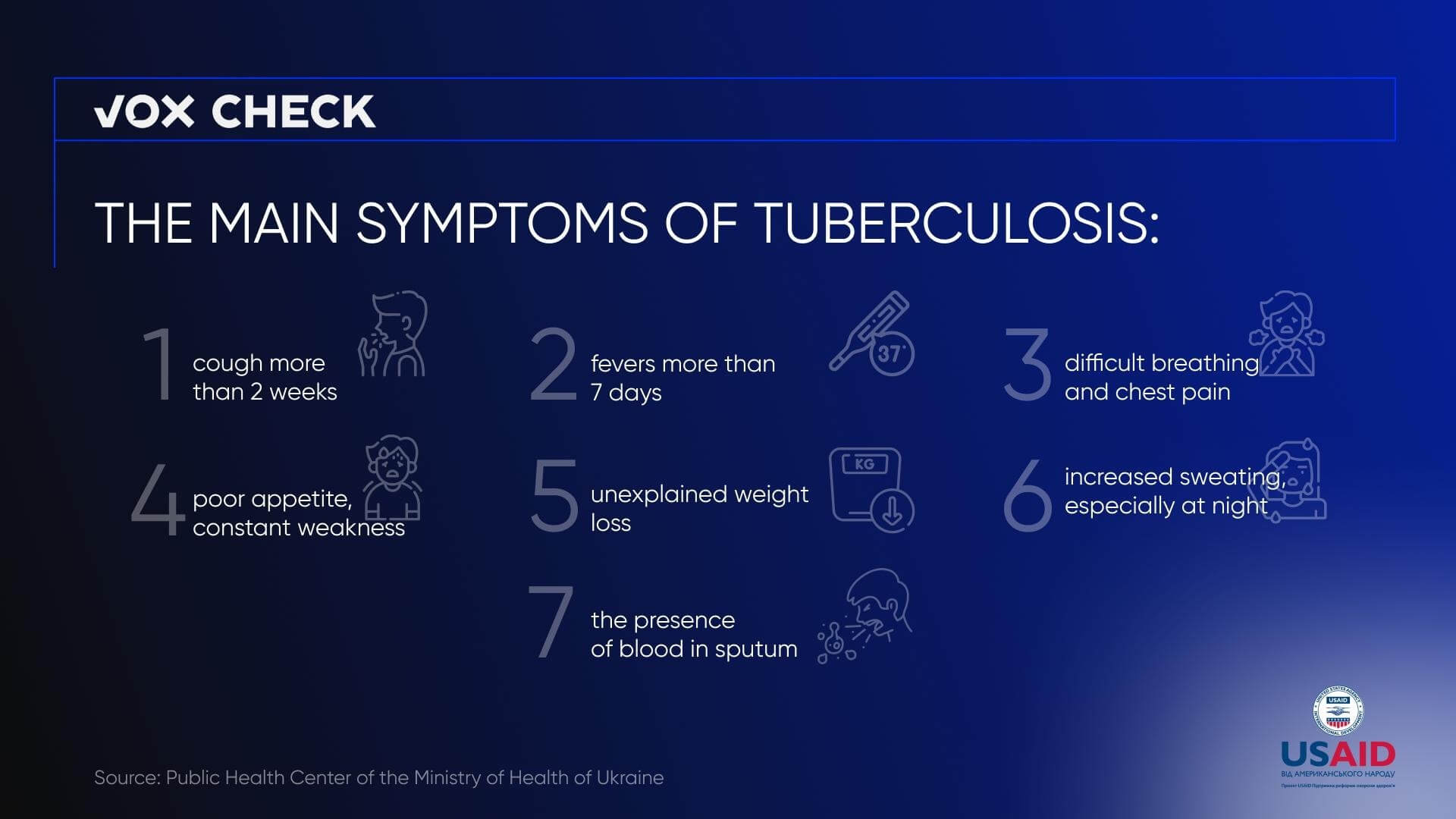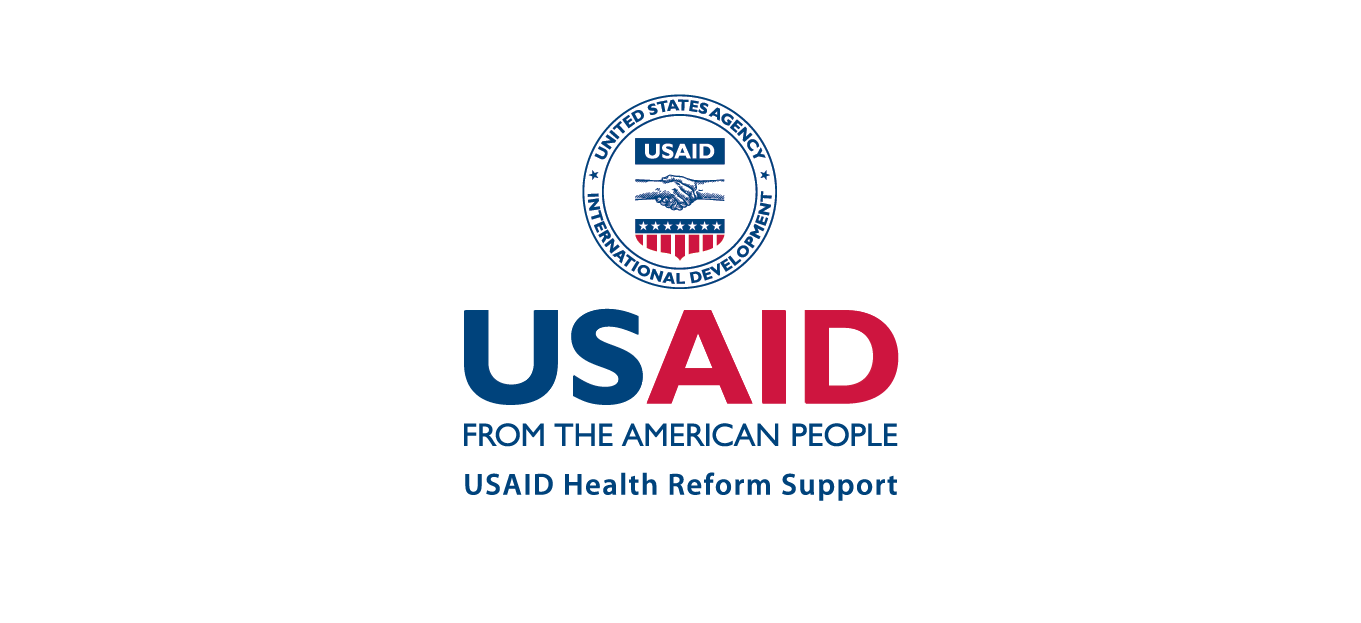It is not the first time that the Russian media have spread disinformation about the medical reform in Ukraine, and especially often mention the former acting Minister of Health Uliana Suprun. Yes, in this issue, we refute the disinformation that all anti-tuberculosis dispensaries were closed by her order in 2019.
With the support of the USAID Health Reform Support project, VoxCheck analyzes and refutes public health narratives spread in the information space of Ukraine, Belarus, and russia on a weekly basis.
The information that a tuberculosis epidemic is beginning in Ukraine is being spread in the network. The authors claim that due to the reform introduced by the former Acting Minister of Health Uliana Suprun, all anti-tuberculosis dispensaries were closed.
What’s the reality?
According to the statistics of the National Health Service of Ukraine (NHSU), in February 2023 (the latest available data at the time of publication), 1,855 new cases of tuberculosis were registered. Last February, 1,772 cases of tuberculosis were recorded. In general, for 2022, the number of cases of tuberculosis, including relapses, increased by 2.5% compared to 2021.
However, on March 24, 2023, the head of the tuberculosis control and prevention department of the Public Health Center, Yana Terleieva, reported that there is no tuberculosis epidemic in Ukraine. Incidence rates in 2022 are lower than before the COVID-19 pandemic: if in 2022 the number of diseases, including relapses, was 45.1 cases per 100,000 population, then, for example, in 2018 and 2019 it was 62.3 and 60.1 cases per 100,000 population, respectively.
Yana Terleieva noted that during the COVID-19 pandemic, tuberculosis was underdiagnosed, so in the near future, thanks to new diagnostic approaches, more people with tuberculosis will be detected. Deputy Minister of Health, Chief State Sanitary Doctor of Ukraine Ihor Kuzin said that in 2022, the level of vaccination against tuberculosis did not reach the recommended indicators, despite the availability of vaccination.
Tuberculosis is an infectious bacterial disease caused by Mycobacterium tuberculosis, which is spread through the air. The main symptoms of the disease are: cough for more than 2 weeks; elevated body temperature for more than 7 days; chest pain; increased sweating, especially at night; constant weakness, unexplained weight loss, hemoptysis.
Source: Public Health Center of the Ministry of Health of Ukraine
The claim that all anti-tuberculosis dispensaries have closed is false.
Former head of the Ministry of Health of Ukraine, Uliana Suprun, explained the need for reform by the fact that the system is outdated and ineffective. Previously, there were no effective drugs for the treatment of tuberculosis, so patients were placed in anti-tuberculosis hospitals. Now the situation has changed: by taking medicine, the patient stops spreading the disease in 2-3 weeks. The Ministry of Health of Ukraine reported that a patient with tuberculosis who regularly takes medication does not need isolation.
In addition, according to the Suprun, there was no separation of patients with different forms of tuberculosis in the inpatient tube dispensary, which also increased the risk of re-infection.
Also, budget funds aimed at the functioning of tube dispensaries were spent inefficiently. Since funding was allocated for a certain number of beds in the medical institution, and not for its efficiency and quality of services provided. According to the co-founder of the NGO “PH Capital. Public Health Experts” of Maria Bachmaga, often patients who should be treated on an outpatient basis based on clinical manifestations, were not offered such treatment. Until 2014, hospitalization for 2 months was mandatory.
In 2019, the Cabinet of Ministers of Ukraine adopted the regulation “On the approval of the State strategy for the development of the system of anti-tuberculosis medical care for the population”, according to which the approach to the treatment of tuberculosis changed from inpatient to outpatient. Therefore, anti-tuberculosis institutions of the region were united into a single anti-tuberculosis institution in the region.
Now the patient can get the medicine in the phthisiatric office in the district or from the family doctor. Measures to diagnose tuberculosis and drugs for the treatment of various forms of the disease are free in Ukraine.
On April 1, 2020, the second stage of medical reform began in Ukraine — the reform of specialized and highly specialized medical care. The basis of the reform was a change in the financing model and implementation of the principle “money follows the patient”. This assumes that the state pays for medical services provided in a specific medical facility through the National Health Service of Ukraine (NHSU). That is, the funds to the medical institution are not given for a bed-place, but for specific services provided to the patient. Currently, 25 medical institutions have a contract with the NHSU to provide care to people with tuberculosis at the inpatient level. Thanks to the Medical Guarantee Program, 31,103 Ukrainians with tuberculosis received treatment in 2022.
In 2023, Ukraine updated the standards of medical care for tuberculosis in accordance with the recommendations of the World Health Organization. Therefore, the treatment of patients with drug-resistant tuberculosis, which develops as a result of either primary infection with mutant strains or due to drug resistance, will be shortened from 18-24 months to 6-9 months.
This information piece was produced with the assistance of the United States Agency for International Development (USAID), provided on behalf of the people of the United States of America. This article’s content, which does not necessarily reflect the views of USAID, the United States Government, is the sole responsibility of Deloitte Consulting under contract #72012118C00001.
Attention
The authors do not work for, consult to, own shares in or receive funding from any company or organization that would benefit from this article, and have no relevant affiliations




